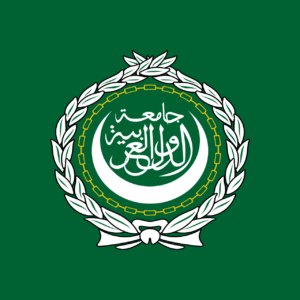The Arab League, or the League of Arab States, is an organization of the Arab world. That is the Middle East and parts of Africa. In 1945, Egypt, Iraq, Jordan, Yemen, Saudi Arabia, Syria, and Lebanon, decided to cooperate on economic and military topics. As of 2021, the organization has 22 members (see list below).
On March 22nd, 1945, in Cairo, Egypt, the founding countries signed the Charter of the Arab League. Further, the charter defines the basic concepts of the organization. These are to promote the general interest, sovereignty, affairs of member states. Arab nationalism is one of the central common grounds.
The states are Muslim and Arabic-speaking. However, significant differences prevail. For example, The density of population, GDP, or levels of education vary substantially. Hence, they aim to overcome these vital differences.

Many of the members focus on natural resources. However, this can turn into a major problem soon. Hence, they ought to focus on diversifying their economies. What further defines the Arab states are frequent troubles in the field of human rights. Besides, a conflict with Isreal regularly hangs in the air. As a result, the United Nations monitor both these situations.
Besides, numerous conflicts occurred among the member countries.
Structure of the Arab League
Like other international institutions such as the United Nations or the European Union, it has several organs. The dominant organ is the Council of the Arab League. It has several committees, which are political, economic, military, health, social, and others.
In the council, Every member state has one representative, and thus, one vote. Hence, the representative is usually a specific minister, head of state, or head of government.
Further, The Joint Defence Council of the Arab League coordinates military actions. Lastly, another major institution is the Arab League Educational, Cultural, and Scientific Organization.
Members
- Algeria
- Bahrain
- Comoros
- Djibouti
- Egypt
- Iray
- Jordan
- Kuwait
- Lebanon
- Libya
- Mauritania
- Morocco
- Oman
- Palestina
- Qatar
- Saudi Arabia
- Somalia
- Sudan
- Syria
- Tunisia
- United Arab Emirates
- Yemen
